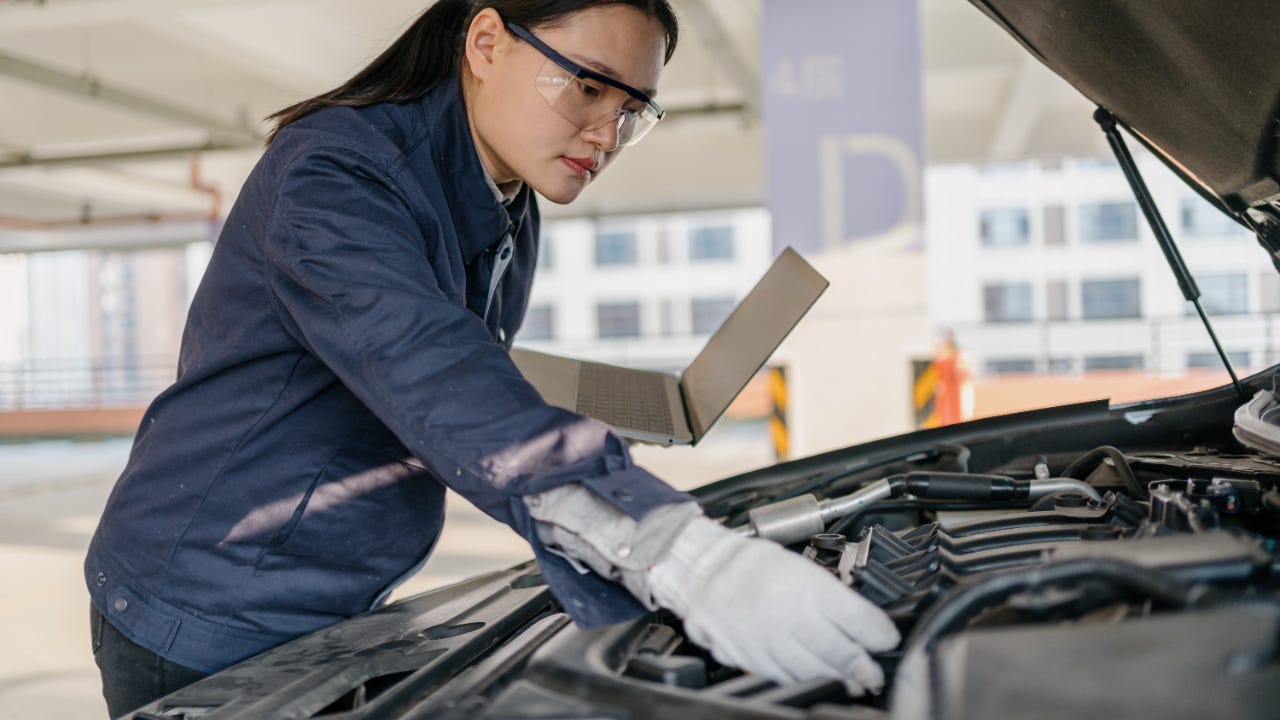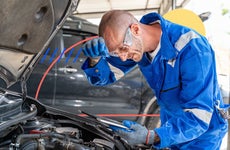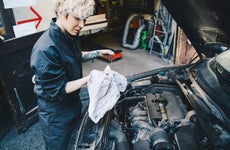Get a used car inspection before buying

The Bankrate promise
At Bankrate we strive to help you make smarter financial decisions. While we adhere to strict , this post may contain references to products from our partners. Here's an explanation for .
Vehicle history reports are a useful guide when researching used cars, but when you’re ready to buy, an inspection is key. Work with a third-party mechanic — someone not associated with the seller — to get an idea of potential problem areas.
Reputable dealers should allow you to get a used car inspection as part of the buying process, and you may be able to get a mobile inspection if a private seller doesn’t want to drive to an unknown mechanic. Most importantly, make sure your mechanic is certified and trustworthy to ensure you’re not signing on for repair bills in the future.
Key takeaways
- Find a third-party mechanic, someone not associated with the seller, to get an independent inspection of a used car
- Request a detailed list of what the inspection covers
- Use the inspection report to negotiate a better price on the vehicle purchase
Why getting an inspection is key to the used car buying process
A pre-purchase inspection will clue you in on the mechanical and cosmetic condition of the vehicle. Not only will this help highlight potential issues, but it will also give you the ability to back out of a purchase if the used car doesn’t meet your needs.
When you schedule an inspection, request a detailed account of what the inspection covers and what the mechanic will be looking for. You should receive a thorough list, including reviewing the exterior and interior for damage and wear. The mechanic will also check the operation of all the car’s features and all fluid levels.
Look for a mechanic who can assess the engine, steering, suspension and frame, as well as signs of previous accidents or water damage. They should also use a code-reading device to check for any error codes that could indicate a problem. Should they find any, you can ask the seller for a receipt for a corresponding repair.
Once you have a report, you’ll be prepared to negotiate a better price or find a different vehicle. It may be more time-intensive, but it could save you thousands in repair bills if you can spot a problem before it becomes an issue.
When to get the used car inspected
You should hold off on an official inspection until you’re sure about the used car. This means negotiating the price, test-driving the vehicle and doing your own inspection first.
Once you’re positive this is the car you want, schedule either a mobile mechanic to visit you or work with the seller to get the car to a trusted shop. A pre-purchase inspection should be the last step to finalizing the sale. After all, you don’t want to spend money on a car you won’t end up buying.
What an inspection costs
An inspection will likely cost anywhere from $100 to $150, according to Consumer Reports. But the actual cost will vary based on the mechanic’s experience, the vehicle’s age and known issues. Your mechanic should be able to give you a quote before you bring the used car in.
Just like taxes and fees, don’t wrap this cost into your loan. Budget for a used car inspection separately — and don’t schedule one until you have narrowed down your selection to a single vehicle that’s in good condition. There is always a chance you won’t want to buy the car, but saving the inspection until late-game negotiation can help you avoid wasting money.
If you’re a AAA member, be sure to check the local AAA website for area mechanics that offer discounts on inspections.
Where to get a used car inspected
Ideally, an inspection should be done by a mechanic you already have a working relationship with. Most independent auto repair and body shops will perform inspections on used cars. But if your mechanic doesn’t, request a referral to a shop that does.
If you don’t already have a mechanic you trust, look for local mechanics not associated with dealerships that have good customer reviews. You can find reviews on the shop’s Better Business Bureau page. Members of the American Automobile Association (AAA) can search for a certified garage, or you can visit a mechanic recommended by your insurance company.
Any mechanic you hire should be certified by the National Institute for Automotive Service Excellence (ASE). Another option is to hire a national firm specializing in used-car inspections, such as Alliance Inspection Management, Carchex and Inspect My Ride.
Request a mobile inspection
Inspections are typically done at a shop or garage, but there are mechanics that offer mobile inspections. This may be more convenient if you’re working with a private seller or the dealer doesn’t allow you to take an extended test drive.
However, this route may be more costly than bringing the car to a shop. You’ll pay for the convenience — and it will likely still take a few hours for the mechanic to fully inspect the vehicle.
Online used car buying and inspections
Online used car sellers like Carvana provide a week where you can test drive the vehicle before finalizing the purchase. This gives you the opportunity to take it to your mechanic and have it inspected.
Since most online sellers don’t allow you to negotiate prices, any mechanical issues discovered may be enough reason to return the vehicle.
Some online sellers have inspection processes in place as well. Carvana, for instance, operates more than one dozen inspection locations across the country. The centers put vehicles through a 150-point inspection. Similarly, Vroom vehicles undergo an extensive inspection and reconditioning process. Inspections include a mechanical, electrical and cosmetic review.
If you’re buying a car sight unseen from a private seller online, be clear that you want to have it inspected by a mechanic before purchase. The seller may not be okay with that — and that’s fine. There are plenty of cars out there, and you should keep searching instead of buying a vehicle that has not been inspected.
Next steps
Regardless of the type of inspection and inspection service you choose, make sure you receive a written report and photos of any areas of concern. This documentation will be helpful in your negotiations to purchase a used car if you decide to move forward with the deal.
Related Articles



